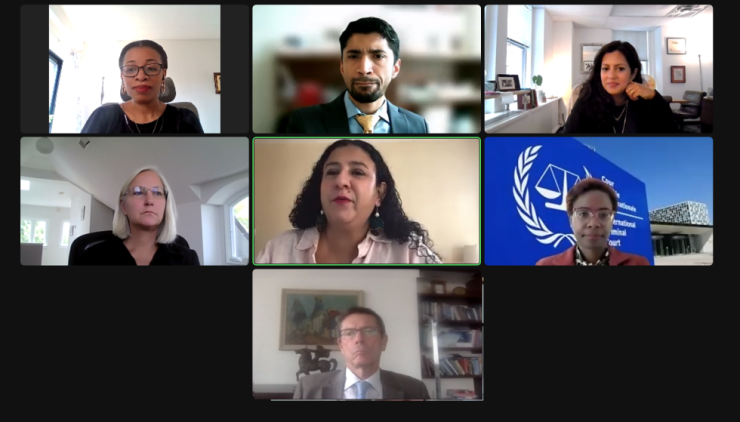The Vance Center and the Global Center on the Responsibility to Protect hosted a virtual panel event “Quo Vadis? The Prosecution of Atrocity Crimes from Myanmar to Ukraine”, with more than 50 people attending.
Conflicts in Myanmar, Tigray, Syria, Yemen, and most recently in Ukraine have prompted renewed attention to the effectiveness of international criminal justice to deter atrocity crimes (war crimes, crimes against humanity, and genocide) and hold perpetrators accountable. International criminal justice has improved significantly in the past decades.
However, as conflicts continue to spread and atrocities worsen, the need to do more to deter such crimes is clear. The role of international tribunals, the United Nations, domestic prosecutions, as well as legal norms such as the Responsibility to Protect, in deterring and prosecuting atrocity crimes is crucial. The webinar explored how lessons learned and best practices from the last decades can inform current proposals to improve the international criminal justice system, particularly as related to the war in Ukraine and other ongoing conflicts. A panel of international justice experts included:
- Ambassador Ivan Simonovic, Permanent Representative of Croatia to the UN, former UN Special Adviser on R2P, and former UN Assistant Secretary-General for Human Rights;
- Katherine Gallagher, Senior Staff Attorney at the Center for Constitutional Rights;
- Arsalan Suleman, Counsel at Foley Hoag, Counsel for The Gambia in the case Application of the Convention on the Prevention and Punishment of the Crime of Genocide (The Gambia v. Myanmar) at the International Court of Justice;
- Akila Radhakrishnan, President of the Global Justice Center; and,
- Karen Mosoti, Head of the Liaison Office of the International Criminal Court to the United Nations.
All of the panelists emphasized that the work of the various accountability mechanisms must be coordinated in order to address different aspects of accountability. They also highlighted the importance of the political will of the international community to hold perpetrators to account for atrocity crimes and warned that, absent consequences for these crimes, we are headed in a negative direction.
Panelists also discussed the use of innovative approaches of enforcing international norms, such as the case at the International Court of Justice by The Gambia against Myanmar for violations of the Convention on the Prevention and Punishment of the Crime of Genocide. They also stressed the importance of adapting accountability to the context.
The recording of the webinar is available here.
The Vance Center is a member of the International Coalition for the Responsibility to Protect (ICR2P), a community of civil society and non-governmental organizations from around the world committed to the promotion of human rights, the prevention of atrocities, and effective and consistent implementation of the Responsibility to Protect principle. The Global Centre for the Responsibility to Protect currently hosts the Coalition, serving as its Secretariat.
The Vance Center has a long history of assisting NGOs worldwide with projects related to accountability for atrocity crimes; most recently the Vance Center is working with the Instituto Vladimir Herzog in Brazil to achieve accountability for crimes of the past dictatorship.



